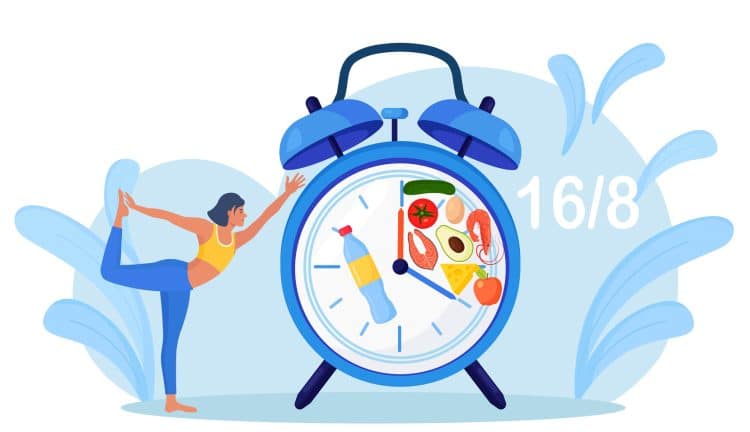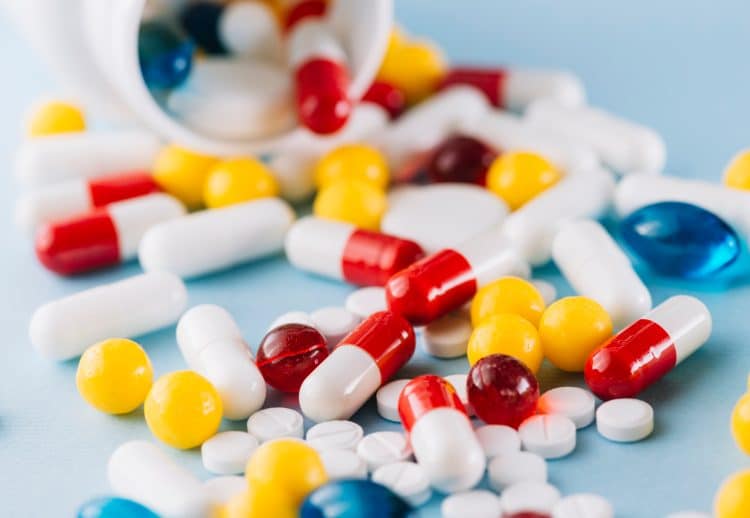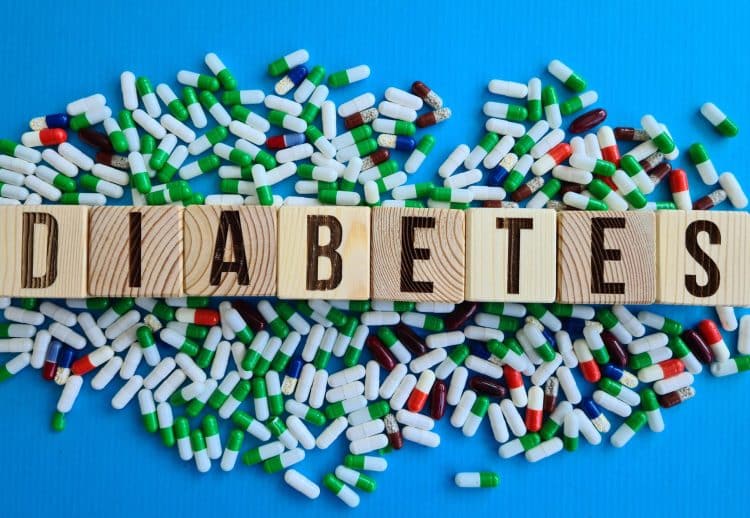Fasting can offer a range of health benefits. While several fasting practices have existed for ages, newer research has confirmed the pros of abstaining from food for a set period.
Intermittent fasting (IF) is a versatile fasting method that allows individuals to choose from different fasting and eating patterns based on their preferences. More people are adopting fasting diets as they become more health conscious.
However, before you commence fasting, it is essential to understand the dos and don’ts, as certain practices could invalidate a fast or hamper desired results. One such widespread concern is whether you can take medicines while fasting. If you have a similar question, this article has you covered and will help you determine what kind of supplements and medicines are allowed during a fasting routine.
Calculate Your Autophagy Timeline
Find out exactly when your body enters autophagy based on your unique profile, diet, and fasting protocol.
Calculate My Autophagy Window →Uncovering Common Concerns About Intermittent Fasting
If you are new to intermittent fasting, it’s essential to understand how it works. Unlike many other forms of fasting, intermittent fasting does not involve going entirely without food. Instead, it enables you to choose from a range of meal schedules that cycle between a fasting and eating window over a given period.
The 16/8 method is arguably the most popular intermittent fasting practice. It includes fasting for 16 hours a day and eating in an eight-hour window. Other IF schedules include the 5:2 diet, eat-stop-eat, alternate-day fasting, and the warrior diet.
People have different concerns regarding intermittent fasting. They want to know about the diet’s effectiveness in helping lower metabolism or how it can help you deal with health conditions such as cardiovascular diseases, diabetes, cholesterol, depression, blood pressure, etc.
Also, many people want to know if they can drink tea during intermittent fasting or what foods are recommended during the eating window. Similarly, many ask if it is alright to consume supplements during a fast or if taking medicine could interfere with their fasting objectives.
How Medicines Impact Your Fast
Some medicines can make fasting tougher, but it also depends on your medication. Medicines such as repositories, inhaling medications for respiratory problems, creams, and ointments do not impact your fasting.
Also, your medicine’s effect can vary if you have it during fasting. Fasting can inhibit your medications’ absorption, as it alters the activity of drug-metabolizing enzymes. [1]
Not all, but most supplements and medicines trigger side effects. Fasting can exacerbate the side effects of these drugs. For instance, medications taken on an empty stomach, especially during long fasting hours, can cause bloating and nausea, which can otherwise be controlled with food.
Intermittent Fasting and Medicine Categories
It is imperative to understand the correlation between fasting methods and medicines and check what medications are allowed while fasting and what should be avoided. Do medicines need to be avoided entirely? Well, not really.
Taking your medications during the eating window is safe and will not break your fast. After consulting your doctor, you can adjust the timing of your medication. Moreover, it is not just about breaking or not breaking your fast. Certain medicines taken during the fast might have some adverse effects.
Some studies indicate that medicines, especially those that help reduce blood pressure, could lead to dehydration during a fast. Furthermore, dehydration can disturb your body’s electrolyte balance and lead to reduced blood pressure. They can also negatively impact heart and kidney functions. This is a vicious cycle that you want to avoid. [1]
Medicines such as ibuprofen taken for pain and inflammation relief, or even Benadryl, for that matter, may not add any calories or carbohydrates to mess with your fasting plan. However, such drugs may induce specific side effects, including nausea, digestive issues, or fasting diarrhea. Hence, their consumption is best avoided on an empty stomach and they should be taken with some food as it can minimize the possible side effects.
So, be it Naproxen or any other over-the-counter anti-inflammation medicine, taking certain groups of drugs during a fast can cause gastrointestinal problems.
Some medicines belonging to the NSAID (non-steroidal anti-inflammatory drug) group of medications are said to have fewer pronounced side effects and do not damage the stomach lining when taken while fasting. These medicines are commonly used to treat minor headaches or body aches. [2]
Different Medicines and Fasting
Here’s a list of the medications that affect fasting and when you should consider taking them:
1. Diabetes Medicines
Some studies indicate that intermittent fasting can help treat certain forms of diabetes, such as type 2 diabetes. [3][4]
So, can you take diabetes medication while fasting? Well, medicines for diabetes work in distinct ways. While some drugs lower blood sugar levels, others stimulate the pancreas to generate more insulin. An intermittent fasting diet naturally lowers your body’s sugar levels. In this state, consuming medication for diabetes can further trigger a drop in blood sugar levels, causing severe hypoglycemia in some cases.
Some medicines used to treat diabetes, such as glimepiride, can stimulate insulin production, impacting your blood sugar levels while fasting. Hence, it is best to consult a doctor before beginning a fasting regimen if you have type 2 diabetes.
Your doctor might consider revising, i.e., lowering your dose while fasting. Other drugs, such as metformin, used for diabetes treatment don’t lower blood sugar levels by themselves and do not contain calories. Hence, it is often recommended while fasting.
2. Thyroid Medicines
Some medicines, such as levothyroxine that help treat thyroid conditions like hypothyroidism should be taken in a fasting state. Such medications will not break your fast. Studies suggest that it has zero calories and works best when taken orally on an empty stomach. This medicine might not absorb optimally when taken with food, leading to higher serum TSH levels. [5]
3. Vitamin Supplements
To decipher the role of vitamin supplementation during intermittent fasting, you should know that there are two kinds of vitamins — water-soluble and fat-soluble. The first category includes vitamins such as vitamin C and vitamin D. Both of these vitamins have no calories, and adding them to your fasting diet will not invalidate your fast. However, some water-soluble vitamins, when taken on an empty stomach, may cause nausea.
Vitamins A, D, E, and K or omega-3 and other multivitamins do not contain calories and hence won’t break your fast. However, consuming these vitamins is not advised on an empty stomach, as they are fat-soluble, and the body needs some form of organic fat to break them down and absorb them. Thus, you may consider taking them during your eating window. Some studies also reveal that excessive consumption of vitamin-fortified foods may cause obesity. [5]
It is not unusual to find multivitamins that contain traces of sugar. Sugars trigger an insulin response, which can break your fast. To increase its absorption, you can take unsweetened multivitamins during your eating window, preferably with or after food.
4. Iron Supplements
Iron is an essential nutrient, and eating iron-rich foods can keep anemia at bay. You may need to take iron supplements to rebuild iron stores in your body from time to time. Some studies show that iron can be best absorbed on an empty stomach but can cause cramps, nausea, diarrhea, or even constipation in some people [6]. Combining your supplement with food can aid in digestion.
You can add different iron supplements to your feeding window. It is essential to learn about what you are choosing. Any supplement that contains calories can break your fast. Also, make sure to check if your supplement has the potential to provoke an insulin response as that too can break your fast. Make sure to rule out iron supplements with any form of artificial or natural sweetener in them.
You can always experiment with supplement timing to check what works best for you. Moreover, meeting your daily vitamin C goals is essential for maximizing iron absorption. [7]
It is true that during extended fasting periods, the stored fats and carbohydrates in your cells are metabolized to generate energy. The body utilizes stored water in the process, which may cause dehydration or nausea. As the body is dehydrated, essential nutrients such as potassium and sodium may be lost. Hence, consuming calorie-free and unsweetened electrolyte supplements can help compensate for the nutrient loss without adding calories or breaking your fast.
Recommendations For Taking Medicines During a Fast
Here are a few tips to consider while having medicines during a fasting regimen:
- If you need to take a medicine once daily that is not required to be taken with food, it is better to take it during the eating window of your intermittent fasting schedule.
- Check with your medical professional if certain medicines can be stopped or their doses revised before beginning your fasting regimen. Changing the schedule of your medicine can also impact its efficacy or trigger side effects, so you should always consult your doctor.
- People with diabetes should remember that taking medicines to regulate blood sugar levels without food can cause a severe fall in blood sugar levels.
- Fasting could cause dehydration and impact kidney and heart health, especially for those undertaking treatment for a related ailment. It is best to review your medicines with your doctor to avoid disturbances to the body’s electrolyte balance, which could have been worsened by possible side effects of certain medicines.
- Medicines that treat pain and inflammation are better taken with food during the eating window and best avoided during fasting to reduce stomach irritation or damage to the lining.
- Medicines that don’t require ingestion, especially topical ones such as creams and ointments or those that can be inhaled through the respiratory tract, do not break your fast.
- Keeping yourself well-hydrated throughout the fasting period is essential.
FAQs
Do over-the-counter medicines break a fast?
No, most over-the-counter medicines won’t break your fast. However, make sure not to take them on an empty stomach.
When is it best to take vitamin supplements during a fast?
For your intermittent schedules, you can wait for the eating window to take your vitamin and mineral supplements. You can take them along with your food for better absorption.
Will a probiotic break my fast?
Probiotics don’t contain calories and won’t break your fast. However, consider consuming them during the eating window as they help with food absorption.
Do prebiotics contain carbohydrates?
No, pure prebiotic supplements do not contain any carbohydrates. However, pre-biotic enriched foods may contain calories and can break your fast.
Can a protein powder supplement break my fast?
Yes. Protein powder can provoke an insulin response. As this opposes autophagy, it will result in breaking your fast. Moreover, most protein powders contain calories.
Learn more about fasting
- Fasting Electrolyte Calculator - Sodium, Potassium, Magnesium
- PSMF Calculator - Protein Sparing Modified Fast
- Fasting Schedule Generator - Build Your Plan
- Ketosis Calculator - When Do You Enter Ketosis?
- Metabolic Switching Calculator - Fat Burning Timeline
- 5:2 Diet Calculator - Fast Day Calories
- IF Macro Calculator - Intermittent Fasting Macros
- Live Fasting Timer - Track Your Fast in Real Time
Wrapping Up
If you are still unsure whether your routine medicines will break your fast, consider consulting your health professional. Some medicines can be consumed in a fasting state, while others, like vitamin supplements, aren’t recommended for consumption on an empty stomach. Not that they will invalidate the fast, but they can aggravate side effects.
It is essential to understand how medicines interact with your body, know the optimal time to take them, and take proper precautions while combining fasting with different drugs.
References
Fitness Volt is committed to providing our readers with science-based information. We use only credible and peer-reviewed sources to support the information we share in our articles.
- Tandel, Kirtida R. “Sugar Substitutes: Health Controversy over Perceived Benefits – PMC.” PubMed Central (PMC). Accessed October 29, 2022.
- The Effects of Aspirin and Acetaminophen on the Stomach in Healthy Volunteers – Full-Text View – ClinicalTrials.gov. “The Effects of Aspirin and Acetaminophen on the Stomach in Healthy Volunteers – Full-Text View – ClinicalTrials.Gov.” Accessed November 16, 2022.
- Albosta, Michael, and Jesse Bakke. “Intermittent Fasting: Is There a Role in the Treatment of Diabetes? A Review of the Literature and Guide for Primary Care Physicians.” PubMed Central (PMC), February 3, 2021.
- PubMed. “Intermittent Fasting: Is There a Role in the Treatment of Diabetes? A Review of the Literature and Guide for Primary Care Physicians – PubMed,” February 3, 2021.
- Zhou, Shi-Sheng, and Yiming Zhou. “Excess Vitamin Intake: An Unrecognized Risk Factor for Obesity.” PubMed Central (PMC), February 15, 2014.
- Taking iron supplements: MedlinePlus Medical Encyclopedia. “Taking Iron Supplements: MedlinePlus Medical Encyclopedia.” Accessed November 16, 2022.
- PubMed. “Interaction of Vitamin C and Iron – PubMed,” January 1, 1980.
Tip: If you're signed in to Google, tap Follow.













